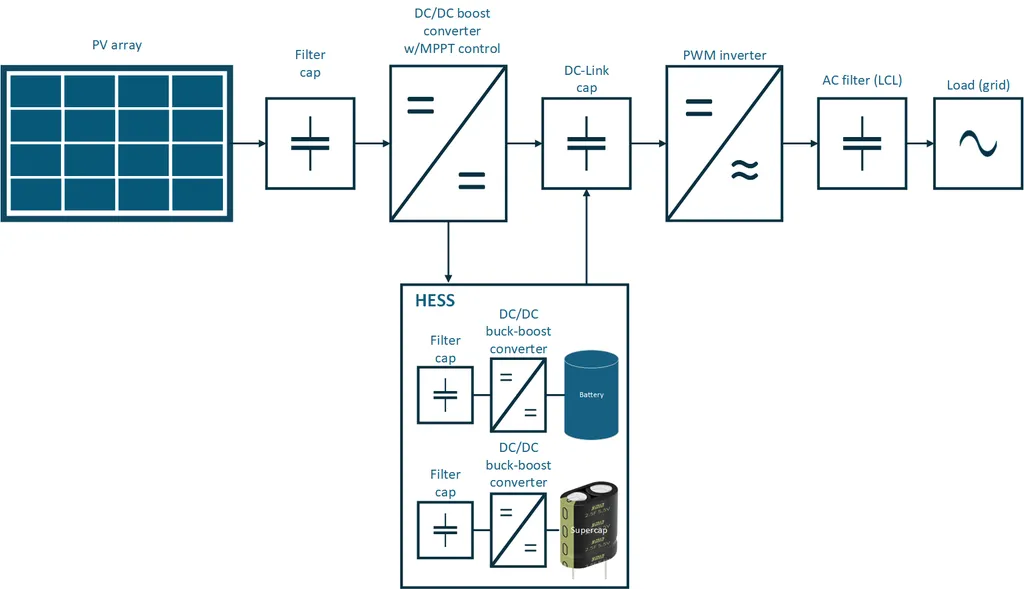In the quest to enhance the efficiency of micro-grids, researchers have developed a novel power quality control device that combines the strengths of super capacitors and active power filters. This innovative device, proposed by lead author Lilan Long and published in the journal “Control and Intelligent Technology” (Kongzhi Yu Xinxi Jishu), promises to revolutionize power regulation, reactive compensation, and harmonic control in micro-grids.
The device leverages the topological similarities and functional complementarities between super capacitor energy storage systems and active power filters. “By integrating these two technologies, we can significantly increase the utilization rate of power quality control devices in micro-grids,” explains Long. The combined device features a bidirectional DC/DC converter and a DC/AC module, each with unique control strategies tailored to their functions.
One of the standout features of this device is its ability to switch between two working modes: power regulation and harmonic control. This flexibility allows the device to adapt to the specific needs of the micro-grid, ensuring optimal performance at all times. “The switching logic of the combined device is designed to be intuitive and efficient, making it easy to integrate into existing systems,” says Long.
The simulation results presented in the study demonstrate the device’s effectiveness in performing its various functions. The device can regulate power, compensate for reactive power, and control harmonics, all according to the requirements of the micro-grid. These results not only verify the rationality of the combined device but also highlight its potential to improve the overall efficiency and reliability of micro-grids.
The implications of this research are significant for the energy sector. As micro-grids become increasingly prevalent, the need for efficient and reliable power quality control devices will only grow. This combined device offers a promising solution to this challenge, with the potential to enhance the performance of micro-grids and contribute to a more sustainable energy future.
In the words of Long, “This research represents a significant step forward in the field of power quality control. We hope that our findings will inspire further innovation and contribute to the development of more efficient and reliable micro-grids.” As the energy sector continues to evolve, the insights gained from this research could pave the way for new developments in power quality control and beyond.

